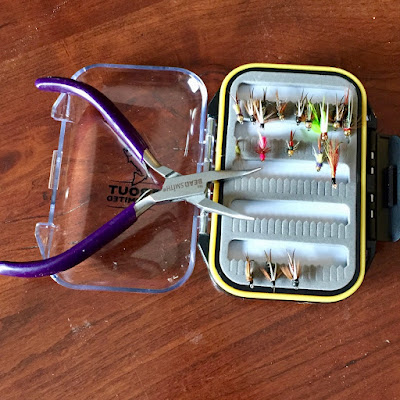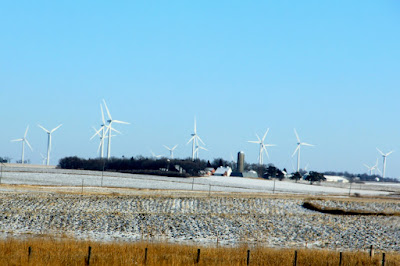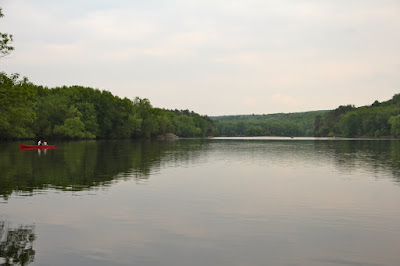Moonset was beautiful this morning, very cold, but beautiful. It looked a lot like the photo below, which was taken in December several years ago.
 |
winter moonset
|
I wish I could train myself to spend more time enjoying the good things in life and less time focused on what’s wrong. That would mean I’d spend more time enjoying life instead of fretting about what I want but don’t have at the moment. In the current example, that would be spring and warmer weather. If I were more accepting of what is, in winter I would not complain about walking dogs in bitter cold weather, nor spring’s rain and ice and mud, nor about summer’s flies and mosquitoes. Instead, I’ve limited the potential enjoyment of much of three seasons, not because of pain but because of discomfort, irritation or aggravation. I don’t believe this kind of dissatisfaction is what
Robert Browning had in mind when he wrote
“Ah, but a man's reach should exceed his grasp,
Or what's a heaven for?”
Alternatively, Jane Hirshfield has said:
I have been given this existence, these years on this Earth, to accept what has come into my lifetime — wars, loves, trucks, betrayals, kindness. I must take them. I must find a way to live in this world. You can’t refuse it. And along with the difficult is the radiant, the beautiful, the intimacy with which each one of us enters the life of all of us and figures out, what is our conversation? What is my responsibility? What must be suffered? What can be changed? How can I meet this in a way which both lets me open my eyes the next day and also, perhaps, if I’m lucky, can be of service?
Rarely, if ever, do I do well with acceptance. Not because I don’t try but because it does not seem to be in my nature to be zen-like. My focus has been much more on the questions “What is my responsibility? What must be suffered? What can be changed?” Perhaps the issue is one of balance rather than absolutes.
If your email inbox is like mine, it daily fills with please to help alleviate one crisis after another. Rarely is there an acknowledgement than any given crisis has been abated, even for the moment. Such beleaguerment feeds guilt but rarely accomplishment. But then there’s the story of saving starfish.
If, come November of this year, democracy is extinguished in the US by US, due to indifference and/or incompetence, it will be tragic but, at least for awhile, the world will continue. Chile lost and then restored its democracy under political conditions that seem quite similar to those of our current time and place: a loss of trust between the two major political parties. In our case, compounded by a loss of trust between the each of the parties and many of its proponents.
As a recovvering planner, I well remember the old dictum “More of the same never solved a problem.” We continue to elect people who believe their side is always right, the other side is always wrong and gridlock is preferable to letting the other side look good or a problem get solved. Until we cease repeating that mistake (those mistakes?), nothing we do is likely to improve things very much. If politics is the art of the possible, then we’ve elected too many politicians who’ve made art impossible. Can we do better?
Trust
Trust that there is a tiger, muscular
Tasmanian, and sly, which has never been
seen and never will be seen by any human
eye. Trust that thirty thousand sword-
fish will never near a ship, that far
from cameras or cars elephant herds live
long elephant lives. Believe that bees
by the billions find unidentified flowers
on unmapped marshes and mountains. Safe
in caves of contentment, bears sleep.
Through vast canyons, horses run while slowly
snakes stretch beyond their skins in the sun.
I must trust all this to be true, though
the few birds at my feeder watch the window
with small flutters of fear, so like my own.
********************************************
Thanks for visiting. Come again when you can.
Please be
kind
to each other while you can.

















